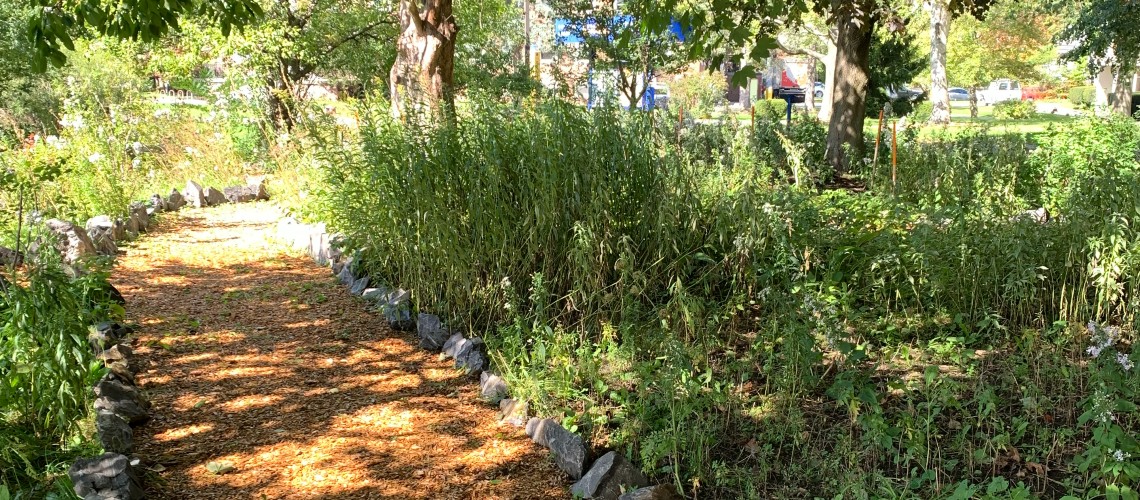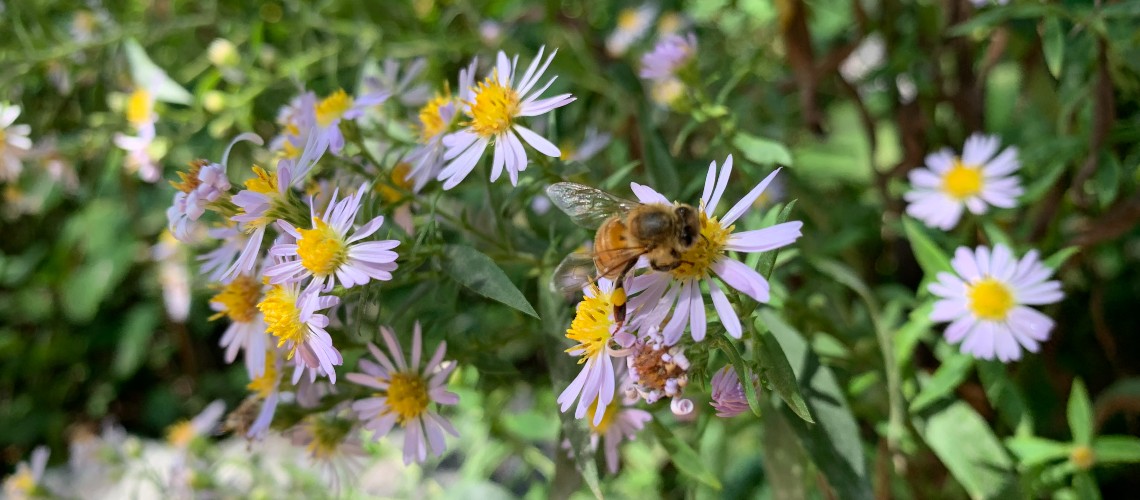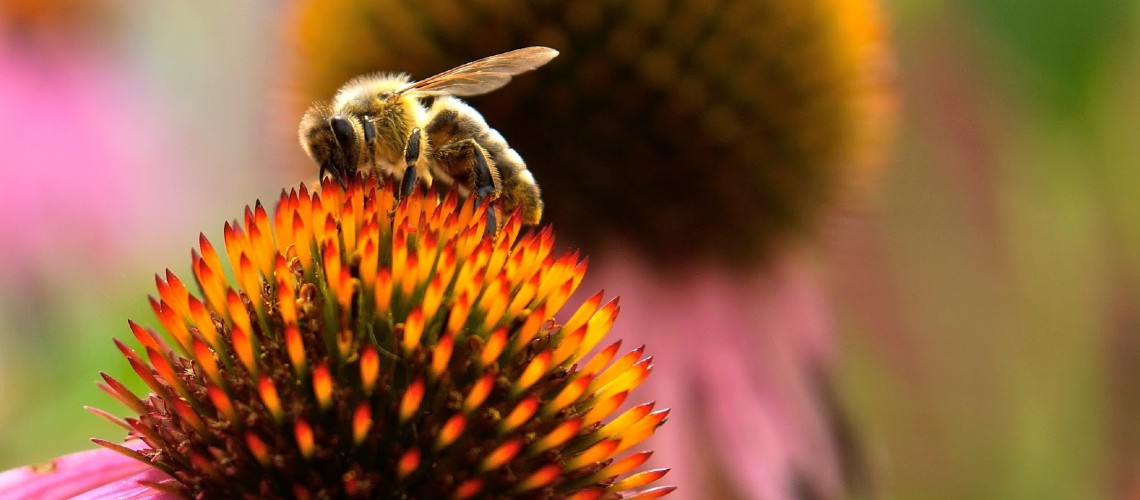USM supports biodiversity conservation through aggressive stormwater management, through integrated pest management, and by actively working to restore native plant species on campus, which in turn support native pollinators, birds and other wildlife. Photo credit for the image above belongs to Benjamin Alcorn.
Caring for the ecosystem requires monitoring, given the high rate of change we are currently experiencing. The Office of Sustainability monitors flora on campus, examining the health of native species and the presence of invasives. The Environmental Science and Policy academic program also monitors the health of certain natural areas on campus, such as the Hemlock Forest on the Gorham campus. Facilities Management and the Office of Sustainability work together to monitor and educate about stormwater impacts on the Portland and Gorham campuses. To learn more about how stormwater affects the aquatic eco-system, to participate in outreach, or to report a storm water issue on campus, click here.
Pollinator Gardens
The Office of Sustainability, the Eco-reps, and the Grounds Department have teamed up to carefully design, plan and install native, pollinator gardens on campus. So far, these gardens host over 25 different native plant species, including rare or threatened species, with plans for many more. In addition to supporting flora diversity and benefitting pollinators, these spaces are designed to serve as peaceful, mental health respites for students, staff or faculty. Please come check out more information on the pollinator gardens located on the USM Portland campus.

Edible Landscaping
In an effort to support outdoor enjoyment of campus and practice the principle of working landscapes, students can find numerous edible trees, shrubs and plants throughout campus, including, but not limited to, blueberries, aronia, service berries, cherries, apples, strawberries and rhubarb. Additionally, three special projects highlight this principle: an apple orchard, vegetable plots, and a food forest.
In the 2010s, the Office of Sustainability re-planted an historic apple orchard on the Gorham campus, down the hill from Robie Andrews Hall.
In 2023, the President’s Office, Office of Sustainability, and the Grounds Department teamed up to plant free-vegetables in two locations on the Gorham campus, one near Brooks and one near Corthell.
On the Portland campus, over a decade ago, USM graduate David Homa worked with the Office of Sustainability to lead a community effort to install a food forest, using permaculture principles. This forest stands between Payson-Smith and Luther Bonney Halls, and serves as the current home for the native pollinator plots. Not all plants and trees in the Forest are edible, but the community is encouraged to study what is there and take fruits from non-native plants that they would like to use, at there own risk.
The University of Southern Maine is not liable for visitors consumption of any plants, plant parts, or fungi growing on campus.



